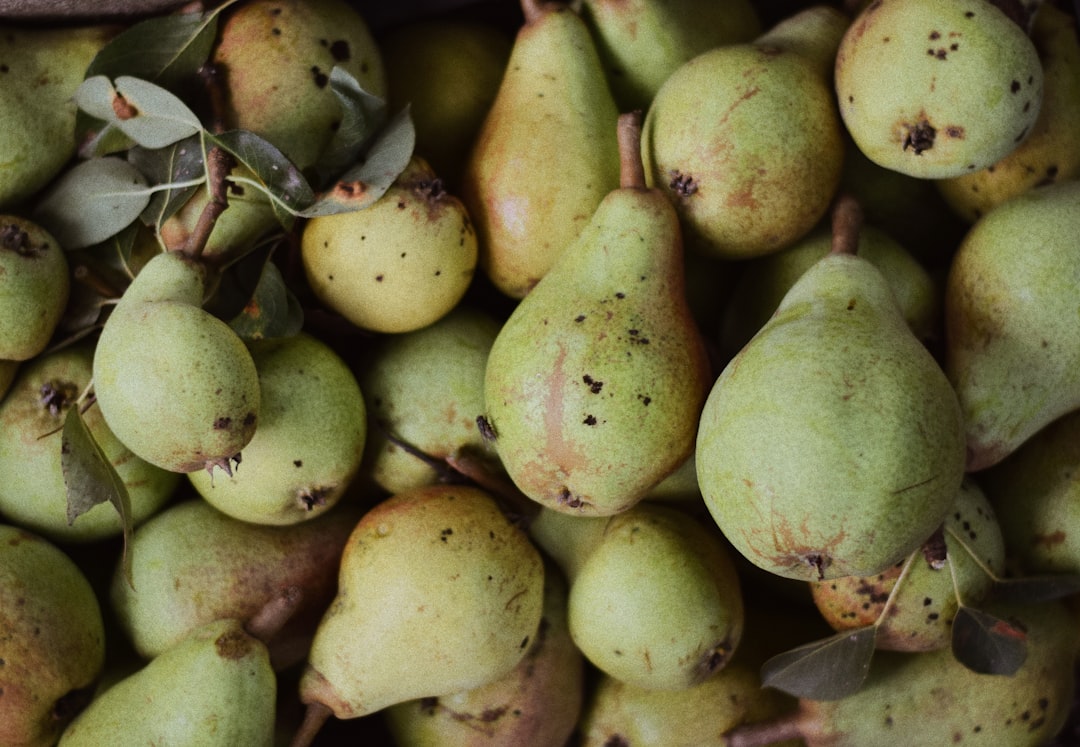As pet parents, we’re always looking for healthy and delicious treats to share with our furry friends. But with so many human foods off-limits for dogs, it’s natural to wonder, “Can dogs eat pears?” The answer is generally yes, but let’s dive into the details to ensure your canine companion enjoys this sweet fruit safely!
Pears for Dogs: A Sweet and Safe Treat?
Good news! Pears are typically safe for dogs to eat in moderation. They offer a good source of vitamins, minerals, and fiber, making them a potentially healthy addition to your dog’s diet. However, there are a few precautions you need to take before sharing this juicy fruit with your pup.
Benefits of Pears for Dogs
Pears offer several potential health benefits for dogs:
- Good Source of Fiber: Fiber aids digestion and can help regulate bowel movements, preventing constipation or diarrhea.
- Vitamins and Minerals: Pears contain Vitamin C, Vitamin K, and copper, all of which contribute to your dog’s overall health and well-being. Vitamin C supports the immune system, while Vitamin K plays a role in blood clotting. Copper is essential for enzyme function and iron absorption.
- Antioxidants: Pears contain antioxidants that can help protect cells from damage caused by free radicals.
- Low in Calories: Compared to some other fruits, pears are relatively low in calories, making them a guilt-free treat option, especially for dogs prone to weight gain.
Potential Risks of Feeding Pears to Dogs
While pears are generally safe, there are a few potential risks to be aware of:
- Cyanide in Seeds: Pear seeds contain trace amounts of cyanide. While the amount is small, it’s best to avoid feeding your dog the core and seeds of a pear.
- Choking Hazard: Large chunks of pear, especially the core, can pose a choking hazard, particularly for smaller dogs or dogs that tend to gulp their food.
- Digestive Upset: Eating too many pears can lead to digestive upset, such as diarrhea or vomiting, due to their high fiber content.
- Pesticides: Non-organic pears may contain pesticides, so it’s best to wash them thoroughly or opt for organic pears whenever possible.
- Sugar Content: Pears contain natural sugars, which can contribute to weight gain or dental problems if consumed in excess, especially in diabetic dogs.
How to Safely Introduce Pears to Your Dog
If you decide to offer your dog pears, follow these guidelines to ensure their safety:
- Start with a Small Amount: Begin by offering your dog a small slice of pear to see how they tolerate it. Observe them for any signs of digestive upset, such as diarrhea or vomiting.
- Remove the Core and Seeds: Always remove the core and seeds before giving your dog a pear. These parts contain trace amounts of cyanide and can be a choking hazard.
- Cut into Small Pieces: Cut the pear into small, bite-sized pieces to prevent choking.
- Wash Thoroughly: Wash the pear thoroughly to remove any pesticides or dirt.
- Moderation is Key: Pears should only be given as an occasional treat and should not make up a significant portion of your dog’s diet.
- Consult Your Veterinarian: If you have any concerns about feeding your dog pears, consult with your veterinarian. They can provide personalized advice based on your dog’s individual health needs.
Pear Varieties: Which are Best for Dogs?
Most pear varieties are safe for dogs, including Bartlett, Anjou, and Bosc. However, ripe pears are generally easier for dogs to digest. Avoid giving your dog unripe or overly ripe pears, as these can cause digestive upset.
Pears vs. Other Fruits for Dogs
Pears can be a healthy alternative to some other fruits and dog treats. Compared to grapes, which are toxic to dogs, pears are a much safer option. They are also lower in calories than some other fruits, such as bananas. However, it’s always important to offer a variety of fruits and vegetables to ensure your dog gets a balanced diet.
Frequently Asked Questions
Can puppies eat pears?
Yes, puppies can eat pears in small amounts, following the same safety guidelines as adult dogs. Make sure to cut the pear into very small pieces to prevent choking, and monitor your puppy for any signs of digestive upset.
Are canned pears safe for dogs?
Canned pears are generally not recommended for dogs. They often contain added sugar or artificial sweeteners, which can be harmful. Fresh pears are always the best option.
Can dogs eat pear juice?
While a small amount of unsweetened pear juice is unlikely to be harmful, it’s best to avoid giving your dog pear juice. It’s high in sugar and lacks the fiber found in whole pears. Water is always the best option for hydration.
What are the signs of pear poisoning in dogs?
True pear “poisoning” is very rare and would only occur if a dog consumed a large quantity of pear seeds. Signs of cyanide poisoning include difficulty breathing, dilated pupils, and bright red gums. However, it’s more likely that a dog would experience digestive upset from eating too many pears, which can cause vomiting, diarrhea, and loss of appetite. If you suspect your dog has eaten too many pears or is showing signs of illness, contact your veterinarian immediately.
In conclusion, pears can be a healthy and delicious treat for your dog when offered in moderation and prepared safely. Remember to remove the core and seeds, cut the pear into small pieces, and wash it thoroughly. Always start with a small amount and monitor your dog for any signs of digestive upset. By following these guidelines, you can safely share this sweet fruit with your furry friend and enjoy the many health benefits it has to offer.

